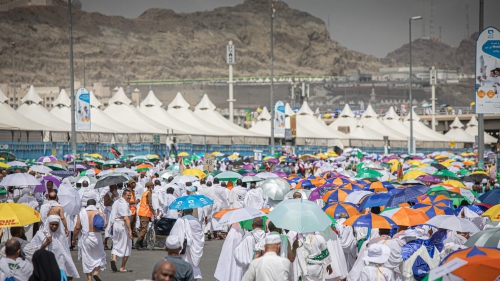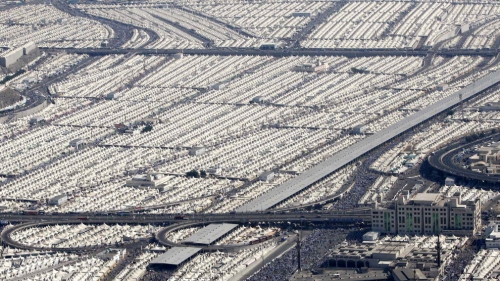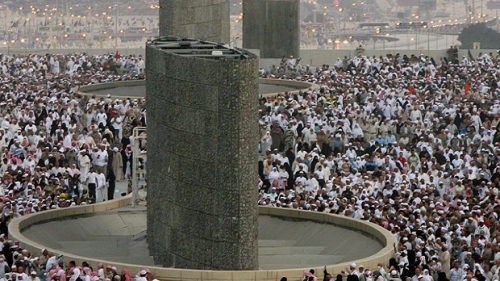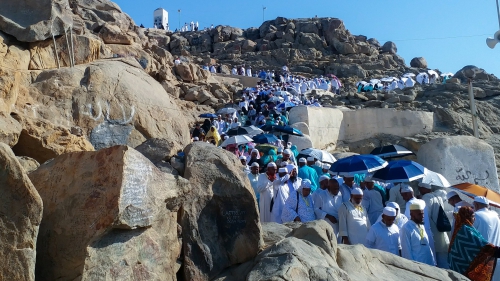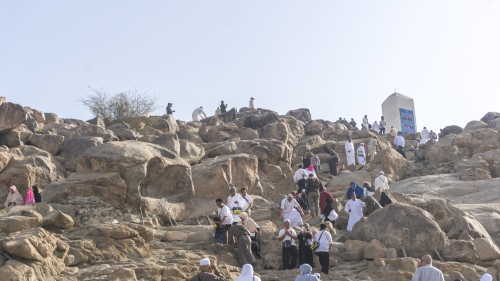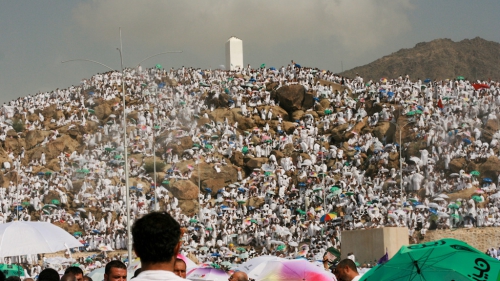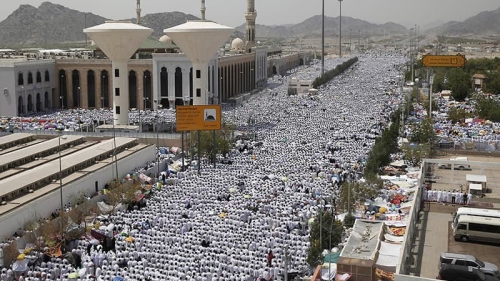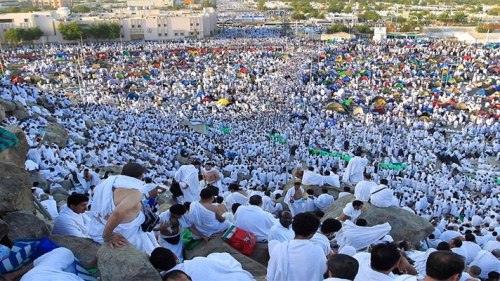... But the best of provisions is Taqwa'
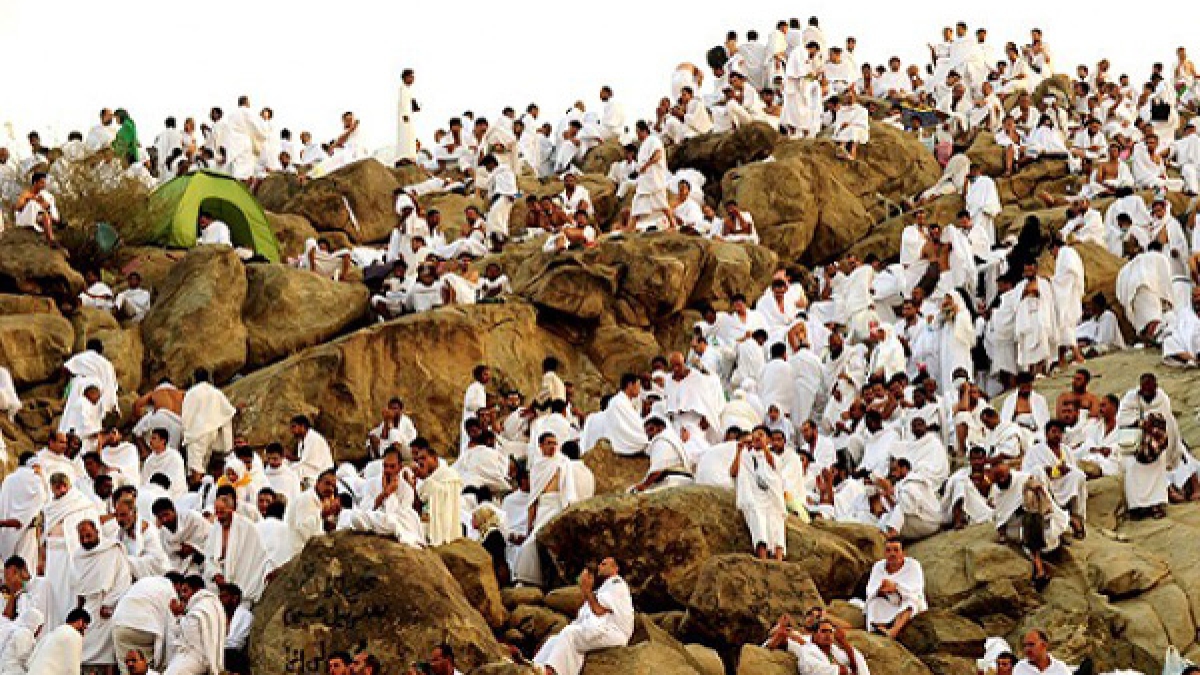
"And proclaim the pilgrimage among men," Allah had commanded Prophet Abraham, "they will come to thee on foot and (mounted) on every kind of camel, lean on account of journeys through deep and distant mountain highways...'
And, responding to the proclamation of Abraham, men and women have kept on coming throughout the millenniums since, all moving toward "the first House of (worship) appointed for men, that which at Bakka, full of blessing."
The modes of transport have changed. Camels have retreated into the past. Boeings and Mercedes have taken their places. Mountain trails and valley crossings have been long buried under expressways.
The physical part of the journey is no longer the test of endurance it once used to be. But the spiritual part has got only harder. "Take provisions for the journey...", the pilgrim is commanded. That presents no problem. All material provisions are available. The infrastructure facilities are provided by the government; others can be obtained at reasonable cost.
"...But the best of provisions is 'Taqwa'." That is where many of us have to struggle. Modern technology has not made Taqwa, the total commitment to shape every facet one's life in such a way as to earn Allah's pleasure, any easier to possess.
That part of the provision is still as hard as ever to come by, rather even more. That is why Haj is not, as many living outside Saudi Arabia seem to imagine, an easy affair even for Saudis and the residents in the Kingdom.
Haj is a spiritual journey. Even for those living in Jeddah or Makkah, it is not something that can be undertaken casually. It means psychological and spiritual preparation. You cannot get up one fine morning and decide to go for Haj.
It was not different for me. It was only when I was mentally prepared and felt I was ready that I decided to approach a mutawwif (pilgrim guide).
There are many such guides who offer their services and claim to be the best. I was lucky to be directed to one through an acquaintance. The Al Qaswa group had about 180 people of various nationalities.
We started off from Jeddah on Tuesday, 8 Dhul Hajjah (15 April), at about 11 in the morning, heading for Mina. The atmosphere was a happy one. Every bus had a guide who gave information on the various aspects of Haj.
It was not until we were approaching the outskirts of Mina that we got our first waning of the tragedy. We were confronted by a pall of smoke four or five stories high.
This was the fire that claimed more than 380 lives. At that time we did not know the seriousness of the situation. The police had cordoned off the area and as we watched and waited, we noticed the smoke getting blacker and rising higher.
It was then that many in our party realized how grim the situation was. Ambulances were tearing down toward hospitals in Makkah.
Fire trucks and civil defense personnel were going in the opposite direction. No one was allowed to approach Mina.
Only at nightfall were we allowed in. Next day, on the ninth of Dhul Hajjah, as we drove to Arafat we noticed, about a mile away from our camp, the extent of the damage.
Rows and rows of tents were burned to the ground. Personnel objects, charred and soggy, lay strewn all over the place. Civil Defense personnel were slowly making their way through the area.
In Arafat, the day was spent in prayers. For, as the Holy Prophet Mohammed (peace be upon him) said, "Haj is Arafat."
In the plain of Arafat, the site of the biggest confluence of worshippers anywhere in the world once every year, an estimated two million people stood, till after the sundown, beseeching the Almighty Allah for His forgiveness and mercy, pleading for succor and blessings. Prayers were also held for those who had lost their lives in the unfortunate incident in Mina.
The whole day was devoted to prayers for ourselves, our families, the poor, the underprivileged, the deprived the sick and the unfortunate. Lucky indeed is the person who can be in Arafat on the ninth of Dhul Hajjah. For those of us who were assembled there, clad in our white ihrams (pilgrim's dress), it was the "day of days."
At dusk we made our way to Muzdalifa, the Sacred Monument. "When you pour down from Arafat, celebrate the praises of God at the Sacred Monument, and celebrate His praises as He has directed you, even though before this, you went astray."
The Maghreb and Isha prayers are held in Muzdalifa. And that is where pilgrims collect stones to throw in Mina.
After morning prayers, we started again. "Then pass on at a quick pace from the place when it is usual for the multitude to do so, and ask for God's forgiveness; for God is oft-forgiving, Most Merciful." We made our way to Mina for the "Rajam" or throwing the stone at the Devil. This is a symbolic act by itself.
The tenth, eleventh and twelfth days are spent in Mina. "Celebrate the praises of God during the appointed days ... and fear God, and know that ye will surely be gathered unto Him."
The place is crowded, with over two million pilgrims cramped in a narrow confine. However, discomforts were the spirit of pilgrimage. It was a world that had lost its dividing lines. Nations and tribes ceased to be significant, except as means to know each other. "O mankind, We created you form a single (pair) of a male and a female, and made you into nations and tribes, that ye may know each other (Not that ye may despise each other)." Black and white, young and old, rich and poor, they all felt alike, prayed alike and looked alike, dressed in their ihram.
The area of the Jamrat was packed with pilgrims. The going was a bit rough for the elderly and the frail. It is here that I would suggest further studies be made on how to overcome this rush. Often there are stampedes and people get crushed.
I would strongly suggest that the Haj Research Center, which had made many studies, be reactivated and experts on Haj movements like Dr. Sami Engawi, who have spent years on studies on how to make Haj easier and simpler in the light of the growing number of pilgrims, be asked to put forward plans. Research on Haj should be an ongoing scheme and there should be no let up. Every year will bring new problems, and since it is in no human being's power to give a final answer, true for all times and situations, research must continue. New solutions will have to be found for new problems; and better ones for old ones.
An inquiry into the unfortunate fire should also come up with solutions to avoid such catastrophes in the future. Fireproof tents should be mandatory. Safety features should be highlighted. The authorities in the Kingdom are sparing no effort to see that pilgrims are offered all comforts. However, many pilgrims by their lack of knowledge also contribute to the confusion. All this can be resolved by study.
From Mina pilgrims go to Makkah for Tawaf Al-Wida and Sa'ay Al- Haj. The Holy Ka'aba is thronged with people and once again the beauty of Haj as the unifier of human beings can be observed.
On the twelfth day of Dhul Hajjah as we prepared to head back to Jeddah and our destinations, a final prayer was offered thanking Almighty Allah for this great opportunity of having performed the Haj - an opportunity which millions of Muslims the world over pray for.
"There are people who say: 'Our Lord! Give us good in this world and good in the Hereafter and defend us from the torment of the Fire!'
"To these will be allotted what they earned and God is quick in account."
Let us once again pray that Haj may become more safer in the coming years.
Topics: Day Of Arafah, Mina, Taqwa (God Consciousness)
Views: 3247
Related Suggestions









